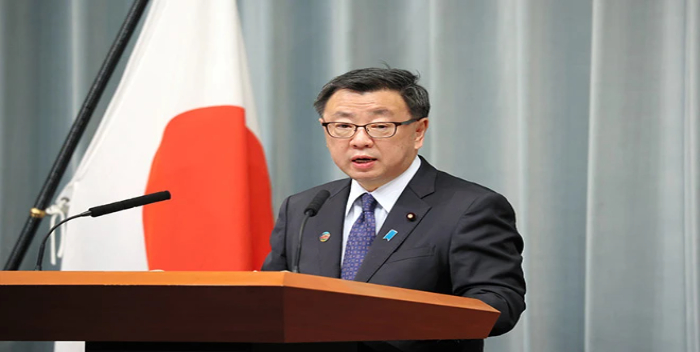The Japanese government added this Friday (03.25.2022) its list of Russian citizens and companies sanctioned as a result of the war with Ukraine, with the freezing of assets of more than twenty people and the suspension of exports to 80 new companies.
Among the people whose assets under Japanese jurisdiction will be withheld until further notice are the head of the Russian Security Council, Nikolai Patrushev; Kremlin spokesman Dmitri Peskov; the Deputy Chief of Staff of President Vladimir Putin, Sergei Kiriyenko; and presidential adviser Sergei Ivanov.
Also joining the list, which now numbers 101 people, are the president of the VEB.RF (Vnesheconombank) bank, Igor Shuvalov, the largest shareholder of the Rossiya bank, Nikolai Shamalov, and Alexei Mordashov, president of the Severstal steelworks and the group of Severgroup investment, in addition to relatives of oligarchs and politicians already sanctioned.
In addition to sanctioning the finances of eminent Russian personalities, Japan today announced the suspension of exports to 80 companies and entities of the federation, among which are shipping companies, companies in the aerospace and electronics sectors, or technological research centers.
The number of companies and entities affected by Japan’s sanctions on account of the war already amounts to 130.
Export ban
“We have decided to take additional measures in freezing assets and banning certain entities from exporting so that Russia stops the invasion of Ukraine as soon as possible,” government spokesman Hirokazu Matsuno said of the new sanctions.
In a press conference held after the announcement of the punitive measures, Matsuno said that “the government of Japan will continue to increase diplomatic and economic pressure on Russia.”
Since the beginning of the conflict, Japan has imposed sanctions on Russian citizens, led by President Vladimir Putin, as well as 12 Belarusians, including his counterpart Alexander Lukashenko, seen as supporting the operation.
Like other G7 countries and the European Union (EU), it has also been applying successive rounds of other sanctions that include the exclusion of Russian banks from the Swift system or the veto of exports of semiconductors, machinery for the oil industry and other technology with war potential.
Japan’s financial authorities have also ordered cryptocurrency exchanges to block transactions involving individuals or entities subject to sanctions against Russia and Belarus, and the country is preparing to amend foreign exchange law to regulate it.

